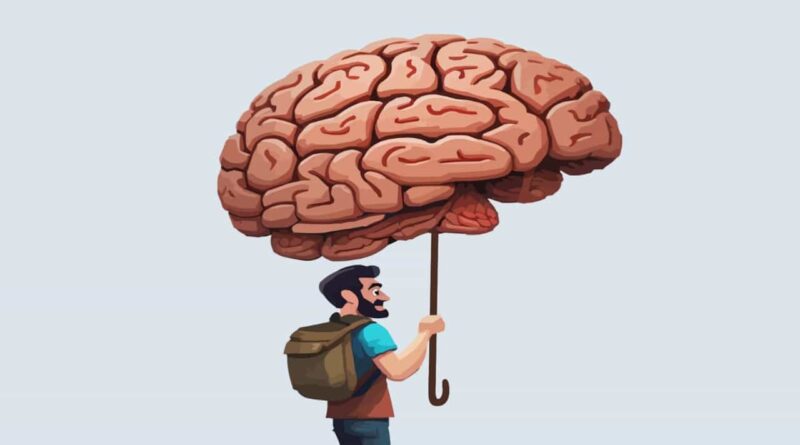Unveiling Mental Health: Amazing Nurturing Mental Health in the Modern Age
Unveiling Mental Health: Nurturing Mental Health in the Modern Age
Unveiling Mental Health Journey
Unveiling Mental Health:
Title: Unveiling the Inner Landscape: Nurturing Mental Health in the Modern Age

Unveiling Mental Health: Introduction:
In an era marked by relentless progress and constant connectivity, the importance of mental health has taken centre stage. While society grapples with the myriad challenges of the digital age, it becomes imperative to delve deeper into the realm of mental well-being.
This article embarks on a journey to explore the intricacies of mental health and provides insightful guidance on how individuals can foster resilience and balance amidst the chaos.
1) Understanding the Fragile Tapestry:
Demystifying Mental Health
Breaking the stigma: Shattering societal taboos surrounding mental health
A holistic perspective: Recognizing the mind-body connection
The spectrum of mental health: Exploring the diverse range of mental well-being
The Modern Conundrum: Navigating Mental Health Challenges in a Digitally Dominant World
The rise of digital dependency: Unraveling the impact on mental well-being
Social media and self-esteem: The allure and pitfalls of the virtual realm
Technostress and information overload: Coping with the incessant flow of data
Cultivating Inner Resilience: Strategies for Nurturing Mental Health
Prioritizing self-care:
The foundation for mental well-being
Embracing mindfulness and meditation: Harnessing the power of the present moment
The healing power of connection: Building and nurturing meaningful relationships
Unveiling Mental Health:
Seeking Help: Breaking the Silence and Embracing Support
Destigmatizing therapy: Recognizing the importance of professional help
Empowering individuals: Accessible resources for mental health support
The Role of Friends and Family: Creating a support network for emotional well-being
Beyond the Individual: Fostering Mental Health Awareness in Society
Advocacy and education:
Promoting mental health literacy
Creating inclusive spaces: Eliminating Discrimination and promoting acceptance
Workplace well-being: Implementing strategies for a mentally healthy work environment
The Road Ahead: Nurturing Mental Health for Future Generations
Unveiling Mental Health:
Early intervention and prevention: Equipping children with mental health tools
Integrating mental health into education: Shaping a more resilient society
Embracing Innovation: Leveraging Technology for mental health advancements
As we journey through the complexities of life, tending to our mental well-being emerges as a vital pursuit. By understanding the intricacies of mental health, embracing self-care, seeking support, and fostering a culture of awareness, we can create a world where mental well-being thrives. Let us embark on this transformative journey, collectively nurturing our minds, and cultivating a brighter future for generations to come.
The Impact of Stress:Unveiling Mental Health:
Unravelling the Connection to Mental Health
The physiological and psychological effects of chronic stress
Stress management techniques: From exercise to journaling
Recognizing and addressing burnout in the modern world
Cultural Perspectives on Mental Health: Embracing Diversity
Cultural Influences on mental health beliefs and Practices
Breaking cultural barriers in accessing mental health support
Celebrating cultural resilience and healing traditions
Trauma and Mental Health: Healing the Wounds
Understanding the long-lasting impact of trauma on mental well-being
Trauma-informed care: Creating safe and supportive environments
Therapeutic approaches to trauma recovery, such as EMDR and CBT
Mental Health and Physical Health: Unveiling Mental Health:
The Interplay
Exploring the reciprocal relationship between mental and physical well-being
Lifestyle factors for promoting both mental and physical health
Integrated healthcare: The importance of collaborative treatment approaches
Mindfulness in Everyday Life:
Harnessing the Power of the Present Moment
Integrating mindfulness into daily routines and activities
Mindful eating, mindful movement, and mindful communication
The benefits of cultivating a mindful mindset in reducing stress and improving mental clarity
Unveiling Mental Health:Nature and Mental Health: The Healing Power of the Outdoors
Ecotherapy: Connecting with nature to enhance mental well-being
Creating green spaces and promoting access to nature for improved mental health
Resilience and Bouncing Back:
Building Strength in the Face of Adversity
Developing resilience skills to navigate life’s challenges
Learning from setbacks and embracing personal growth
The Role of positive psychology in fostering resilience and Well-being
Mental Health and Aging:
Addressing the Unique Needs of Older Adults
The impact of ageing on mental health and Well-being
Addressing Loneliness and social isolation in older adults
Age-friendly mental health services and support systems
The Power of Creativity: Art, Music, and Expression for Mental Health
Exploring the therapeutic benefits of creative outlets
Art therapy, music therapy, and other expressive modalities
Encouraging self-expression and fostering emotional healing through creativity
Unveiling Mental Health:
In a world that often prioritizes external achievements, nurturing mental health has become a vital endeavour. By understanding the intricate nuances of mental well-being, embracing diverse perspectives, and adopting proactive strategies, we can create a society that values and supports mental health.
Through awareness, compassion, and a commitment to self-care, we can pave the way for a more resilient and mentally thriving future. Let us embark on this transformative journey, hand in hand, nurturing our minds and elevating the collective well-being of humanity.
Unvelling Mental Health: what is mental health
Unveling the Tapestry of Mental Health: Embracing Complexity and Nurturing Well-being
Mental health is a multi-dimensional and intricate concept that encompasses our emotional, psychological, and social well-being. It influences how we think, feel, and act, shaping our perceptions, interactions, and overall quality of life.
While the understanding and discourse surrounding mental health have evolved significantly in recent years, it remains a complex and dynamic field that requires continuous exploration and nurturing. In this article, we will embark on a journey to unravel the tapestry of mental health, exploring its various facets and highlighting the significance of promoting well-being in our lives.
Mental Health as a Continuum:
Contrary to popular belief, mental health is not a binary state of being “healthy” or “unhealthy.” Rather, it exists along a continuum, where individuals experience a range of emotions, thoughts, and behaviours that can fluctuate over time. At one end of the spectrum lies optimal mental health, characterized by resilience, self-awareness, and positive coping mechanisms.
On the other end, we find mental health challenges, such as anxiety, depression, or other disorders. Recognizing mental health as a continuum helps us acknowledge the nuances of human experiences and challenges the stigmatization often associated with mental health issues.
The Influence of Biological and Environmental Factors:
Genetic predispositions, brain chemistry, and neurological imbalances can contribute to the development of mental health conditions.
Similarly, external factors such as childhood experiences, social support systems, socioeconomic status, and cultural influences shape our mental well-being. Understanding the diverse factors involved empowers us to adopt a holistic approach towards mental health, encompassing prevention, intervention, and support.
Promoting Mental Well-being: Unveiling Mental Health:
Just as physical health requires proactive measures, nurturing mental well-being is essential for leading fulfilling lives. Taking care of our mental health involves self-care practices, maintaining healthy relationships, seeking professional help when needed, and fostering a supportive and inclusive environment.
Engaging in activities such as regular exercise, mindfulness meditation, creative outlets, and connecting with nature can also enhance mental well-being. By embracing a proactive and preventive mindset, we can mitigate the risk of mental health challenges and promote resilience.
The Power of Communication and Destigmatization:
Open and honest communication about mental health plays a pivotal role in creating an inclusive society. Breaking the silence surrounding mental health challenges and sharing personal stories can help reduce stigma and encourage individuals to seek support.
It is crucial to foster compassionate and non-judgmental spaces where individuals feel safe to express their emotions and struggles without fear of discrimination. By engaging in dialogue, we can bridge the gap between mental health and the wider community.
Cultivating a Holistic Approach:Unveiling Mental Health:
Recognizing mental health as an integral part of overall well-being requires a holistic approach. It involves integrating mental health promotion into various aspects of society, including education, workplaces, healthcare systems, and public policies. Incorporating mental health education into school curricula, promoting workplace well-being programs, and ensuring accessible mental health services are fundamental steps towards building a mentally healthy society.
Mental health is a profound and intricate concept that demands our attention, understanding, and action. By acknowledging the continuum of mental health, considering the influence of biological and environmental factors, promoting well-being, fostering open communication, and embracing a holistic approach,
we can create a society that values mental health as an essential aspect of human flourishing. Let us strive to unravel the tapestry of mental health, one thread at a time, and nurture the well-being of individuals, families, and communities around the world.
Unveiling Mental Health: Amplifying Mental Health Awareness: A Call to Action
Mental health awareness has become a critical and pressing issue in today’s society. With the increasing prevalence of mental health challenges globally, it is imperative to raise awareness and promote understanding about mental well-being.
By shedding light on this topic, we can dispel misconceptions, combat stigma, and create a supportive environment that encourages individuals to seek help and support. In this article, we will explore the importance of mental health awareness and discuss how each of us can contribute to this vital cause.
Breaking the Silence: Unveiling Mental Health:
One of the primary goals of mental health awareness is to break the silence and initiate conversations about mental health. By openly discussing our experiences, emotions, and challenges, we create a safe space for individuals to share their stories without fear of judgment or isolation.
It is essential to promote open dialogue at home, in schools, workplaces, and communities, encouraging people to talk about their mental health and seek support when needed. Through active listening and empathy, we can foster a culture that values mental well-being and promotes understanding.
Challenging Stigma:
It perpetuates stereotypes, discrimination, and fear, preventing individuals from seeking treatment and feeling comfortable discussing their mental health concerns. Mental health awareness aims to challenge these stigmas by providing accurate information, dispelling myths, and promoting acceptance.
It involves educating ourselves and others about mental health conditions, emphasizing that they are medical conditions, not personal weaknesses. By fostering a compassionate and non-judgmental attitude, we can create an environment that supports those facing mental health challenges.
Spreading Knowledge:
Raising mental health awareness requires disseminating accurate and reliable information about mental health conditions, available resources, and treatment options. Educating ourselves about common mental health disorders, their symptoms, and the importance of early intervention can help us recognize signs in ourselves and others.
Sharing this knowledge with friends, family, and colleagues can create a ripple effect, increasing awareness and understanding throughout our communities. Additionally, leveraging social media, public campaigns, and educational programs can amplify the reach of mental health information, reaching a broader audience and facilitating meaningful conversations.
Supporting Mental Health Initiatives:
Supporting mental health initiatives and organizations is a concrete way to contribute to mental health awareness. Many organizations work tirelessly to provide resources, support services, and advocacy for individuals living with mental health challenges.
By volunteering, fundraising, or donating to these organizations, we actively participate in the efforts to promote mental well-being. Additionally, supporting policies and legislation that prioritize mental health funding and access to care can create lasting change and ensure that mental health is a priority in society.
Prioritizing Self-Care and Well-being:
Lastly, promoting mental health awareness starts with taking care of our well-being. Engaging in self-care practices, such as maintaining a healthy lifestyle, practising mindfulness, seeking therapy when needed, and managing stress, sets an example for others and fosters a culture of self-care.
When we prioritize our mental health, we become advocates for mental well-being, inspiring those around us to do the same.
Mental health awareness is a collective responsibility that requires active engagement from individuals, communities, and society as a whole. By breaking the silence, challenging stigma, spreading knowledge, supporting mental health initiatives, and prioritizing our well-being, we can make a meaningful impact in promoting mental health awareness. Let us strive to create a world where mental health is openly discussed, understood, and valued, ensuring that no one suffers in silence and that everyone has access to the support they need.
Understanding Mental Health Disorders: Unraveling the Complexity
Mental health disorders are pervasive and diverse conditions that affect millions of individuals worldwide. These disorders encompass a wide range of conditions, each with its unique symptoms, causes, and treatment approaches.
In this article, we will delve into the realm of mental health disorders, shedding light on their prevalence, common types, and the importance of destigmatizing these conditions to promote understanding, empathy, and effective support systems.
The Prevalence of Mental Health Disorders:
Mental health disorders are far more common than one might think.
These disorders do not discriminate based on age, gender, ethnicity, or socioeconomic status, affecting individuals from all walks of life. It is essential to recognize the widespread nature of mental health disorders to foster a sense of compassion and dispel misconceptions surrounding them.
Common Types of Mental Health Disorders:
There are numerous types of mental health disorders, each characterized by distinct symptoms and diagnostic criteria. Some of the most prevalent mental health disorders include:
a. Anxiety Disorders: These disorders involve excessive worry, fear, and apprehension, often resulting in physical symptoms such as rapid heartbeat, sweating, and restlessness.
b. Mood Disorders: Mood disorders are characterized by disturbances in mood, ranging from depressive episodes to manic or hypomanic episodes.
d. Eating Disorders: Eating disorders, such as anorexia nervosa, bulimia nervosa, and binge-eating disorder, involve disturbances in eating behaviours and body image perceptions.
e. Personality Disorders: Personality disorders are characterized by rigid and maladaptive patterns of thinking, feeling, and behaving that cause significant distress and impair daily functioning.
The Complexity of Causes:
Mental health disorders arise from a complex interplay of various factors, including biological, psychological, and environmental components. While the exact causes differ for each disorder, biological factors such as genetic predispositions, imbalances in brain chemistry, and hormonal irregularities can contribute to their development.
Psychological factors like trauma, stress, and maladaptive coping mechanisms can also play a significant role. Additionally, environmental factors such as adverse childhood experiences, social isolation, and substance abuse can contribute to the manifestation of mental health disorders.
The Importance of Destigmatization and Support:
The stigma surrounding mental health disorders remains a significant obstacle to individuals seeking help and support. The pervasive misunderstanding and judgment surrounding these conditions can lead to isolation, discrimination, and reluctance to seek treatment.
By destigmatizing mental health disorders, we create an environment where individuals feel safe to disclose their struggles, seek professional help, and access the support they need. This includes fostering open conversations, providing accurate information, and promoting empathy and understanding.
Seeking Treatment and Support:
Recovery and management of mental health disorders are possible with the right treatment and support systems in place. Treatment approaches vary depending on the specific disorder but often involve a combination of therapy, medication, lifestyle changes, and support from healthcare professionals, family, and friends.
It is crucial to encourage individuals experiencing mental health disorders to seek professional help, as early intervention can significantly improve outcomes and quality of life.
Mental health disorders are complex conditions that affect individuals across the globe. By understanding their prevalence, common types, and the multifaceted causes behind
Unveiling mental health issues
Unveiling the Stigma: Understanding and Supporting Mental Health Issues
Mental health issues affect millions of people worldwide, yet they often remain shrouded in stigma and misunderstanding. It is essential to shed light on these challenges, raise awareness, and promote empathy and support for those facing mental health issues. In this article, we will explore the intricacies of mental health issues, debunk common myths, and guide how we can create a more inclusive and compassionate society for individuals dealing with these conditions.
Mental Health Issues: A Universal Struggle
Mental health issues encompass a wide range of conditions, including depression, anxiety, bipolar disorder, schizophrenia, and more. They do not discriminate based on age, gender, or background. It is crucial to acknowledge that anyone can experience mental health challenges.
Challenging the Stigma
The stigma surrounding mental health issues often leads to discrimination, isolation, and a reluctance to seek help. It is vital to challenge stereotypes, educate ourselves, and foster a safe environment that encourages open dialogue about mental health.

The Importance of Empathy
Empathy is key to supporting individuals with mental health issues. By striving to understand their experiences and perspectives, we can create an environment of compassion and acceptance, reducing the burden of the stigma they often carry.
Breaking the Silence: Encouraging Conversation
Open and honest conversations about mental health help break down barriers and encourage individuals to seek help. By creating spaces where people feel safe to share their struggles, we can dismantle the silence and provide support for those in need.
Myth vs. Reality: Debunking Misconceptions
Addressing misconceptions surrounding mental health issues is crucial. Common myths include believing mental illnesses are a sign of weakness or that individuals can “snap out of it.” By dispelling these myths, we can foster a more understanding and supportive society.
Seeking Professional Help
Mental health issues often require professional intervention. Encouraging individuals to seek therapy, counselling, or medication when necessary is vital in promoting recovery and well-being.
The Power of Self-Care
Practising self-care is crucial for individuals dealing with mental health issues. Engaging in activities such as exercise, mindfulness, creative outlets, and maintaining healthy relationships can contribute to overall well-being.
The Role of Support Systems
Building strong support systems is vital for individuals facing mental health challenges. Friends, family, and communities play a crucial role in providing understanding, encouragement, and practical assistance when needed.
Advocacy and Social Change
Advocacy for mental health awareness and policy change is necessary to create a more inclusive society. Supporting organizations, participating in awareness campaigns, and advocating for mental health education in schools are ways we can contribute to positive social change.
The Journey to Recovery
Recovery from mental health issues is often a lifelong process. It is essential to emphasize that recovery looks different for everyone and that each step forward, no matter how small, is significant and worth celebrating.
Understanding and supporting mental health issues requires empathy, education, and the collective effort of society. By challenging stigma, fostering open conversations, and providing support and resources, we can create a world where mental health issues are treated with the same compassion and understanding as physical ailments. Let us stand together, break the silence, and embrace the journey toward mental well-being for all.
Unveiling Mental Health: mental health first aid
Mental Health First Aid: Empowering Individuals to Support Mental Well-being
In recent years, the importance of mental health has gained recognition, leading to a growing emphasis on mental health first aid. Just as physical first aid is essential in responding to physical injuries, mental health first aid equips individuals with the knowledge and skills to provide initial support to someone. In this article, we explore the concept of mental health first aid, its significance, and how it empowers individuals to make a positive difference in the lives of others.
Unveiling Mental Health: What is Mental Health First Aid?
Mental health first aid is the initial assistance provided to someone experiencing a mental health problem or crisis. It involves recognizing signs and symptoms, offering support and reassurance, and connecting individuals to appropriate professional help if needed.
The Importance of Mental Health First Aid
Just as physical health emergencies require immediate attention, mental health crises also demand swift action. Mental health first aid helps bridge the gap between crisis and professional help, ensuring that individuals receive the necessary support during challenging times.
Recognizing Signs and Symptoms
Mental health first aid training equips individuals with the ability to identify common signs and symptoms of mental health problems such as depression, anxiety, substance abuse, self-harm, and suicidal thoughts. Early recognition can lead to timely intervention and improved outcomes.
Providing Initial Support and Reassurance
Mental health first aid training teaches individuals how to offer initial support and reassurance to someone in distress. Active listening, empathy, and non-judgmental communication are essential skills that can make a significant difference in someone’s experience.
Destigmatizing Mental Health
Mental health first aid helps combat the stigma surrounding mental health issues by fostering understanding and compassion. It promotes the idea that mental health problems are common, treatable, and deserving of support and respect, just like physical health conditions.
Encouraging Help-Seeking Behavior
Mental health first aiders play a crucial role in encouraging individuals to seek professional help when necessary. By providing information about available resources and guiding them towards appropriate services, mental health first aid can facilitate timely intervention and support.
Self-Care for Mental Health First Aiders
Supporting others’ mental well-being can be emotionally demanding, which is why mental health first aid training also emphasizes self-care. It highlights the importance of setting boundaries, seeking support for oneself, and engaging in activities that promote personal well-being.
Community Impact
Mental health first aid has the potential to create a ripple effect in communities. When more individuals are trained in mental health first aid, it leads to a supportive environment where people feel comfortable discussing mental health, seeking help, and receiving the support they need.
Integration in Various Settings
Mental health first aid training can be integrated into various settings such as workplaces, schools, universities, and community organizations. By training employees, educators, and community members, we can create a network of mental health first-aiders who are ready to assist when needed.
Continual Learning and Growth
Mental health first aid is not a one-time training; it is an ongoing learning process. Staying updated with current information, research, and best practices ensures that mental health first-aiders can provide the most effective support to those in need.
Mental health first aid is a powerful tool that empowers individuals to be proactive in supporting mental well-being. By recognizing signs, offering initial support, and connecting individuals to appropriate resources, mental health first aiders contribute to early intervention and improved outcomes. Let us embrace the value of mental health first aid and work towards building a society where mental well-being is prioritized and supported at every level.
Unveiling Mental Health: why is mental health important
mental health test
Unravelling the Significance of Mental Health: A Journey to Self-Wellbeing
In a fast-paced and demanding world, the importance of mental health has emerged as a pressing concern. While physical health often takes the spotlight, our mental well-being is equally vital for leading a fulfilling and balanced life. In this article, we will explore the reasons why mental health is of paramount importance in today’s society and why taking care of our mental well-being should be a top priority.
Emotional Resilience and Happiness
One of the primary benefits of prioritizing mental health is the development of emotional resilience. When we nurture our mental well-being, we enhance our ability to cope with stress, adversity, and the challenges life throws at us. By cultivating resilience, we can bounce back from setbacks, maintain a positive outlook, and ultimately experience greater happiness and life satisfaction.
Improved Physical Health
The mind and body are deeply interconnected, with mental health significantly influencing physical well-being. Neglecting mental health can lead to the development or exacerbation of physical ailments such as cardiovascular disease, weakened immune system, and chronic pain. Conversely, when we take care of our mental health, we enhance our overall physical health, boosting our immunity, energy levels, and longevity.
Enhanced Productivity and Performance
A healthy mind is the foundation for optimal performance in various domains of life. Mental well-being positively impacts our cognitive abilities, concentration, and problem-solving skills. By managing stress, and anxiety, and maintaining good mental health, we can unlock our full potential and achieve peak performance in academics, work, and personal pursuits.
Stronger Relationships and Social Connections
Mental health plays a pivotal role in our relationships and social interactions. When we prioritize our mental well-being, we develop healthier communication patterns, empathy, and self-awareness. This, in turn, leads to more fulfilling relationships with family, friends, and romantic partners. By nurturing our mental health, we become better equipped to form deep and meaningful connections, fostering a sense of belonging and social support.
Prevention and Early Intervention
Investing in mental health is crucial for preventing the onset of mental disorders and promoting early intervention. By prioritizing mental well-being, we can identify and address potential issues before they escalate, reducing the risk of long-term psychological distress. Early intervention also increases the likelihood of successful treatment and recovery from mental health conditions.
In a world that often prioritizes external achievements and material success, it is imperative to recognize the significance of mental health. Our mental well-being influences every aspect of our lives, from our emotions and relationships to our physical health and overall happiness.
By acknowledging the importance of mental health, we can break the stigma surrounding mental illness, encourage open conversations, and seek the support and resources needed to nurture our well-being. Remember, investing in your mental health is an investment in yourself, your relationships, and your future. Take the first step today towards a healthier and more fulfilling life.

Unveiling Mental Health: Mental Health Test:
While it is not possible to provide a comprehensive mental health test within the scope of this article, there are various professional resources available for assessing one’s mental well-being. If you are concerned about your mental health or suspect you may be experiencing mental health issues,
it is advisable to consult with a licensed mental health professional who can conduct a thorough assessment and provide appropriate guidance and support tailored to your specific needs. Remember, seeking help is a sign of strength, and there are resources available to assist you on your journey toward mental well-being.
Unveiling Mental Health:
Unveiling Mental Health: Amazing Nurturing Mental Health in the Modern Age




